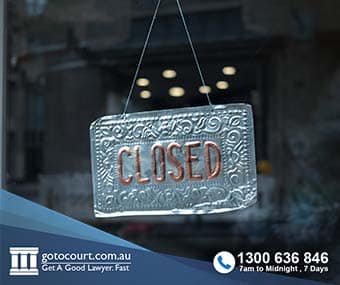Alternative Dispute Resolution in Victoria
Alternative dispute resolution is a range of processes used to try to resolve a disagreement without bringing it to court. In many types of civil and family law matters, a party is required to attempt to resolve the dispute through alternative dispute resolution the court will agree to hear an application. This page deals with alternative dispute resolution in Victoria.
Negotiation
Negotiation is often the first step in resolving disputes. It involves the parties to a dispute discussing the problem with each other and presenting options for resolution.
Negotiation may be done orally or in writing.
Mediation
Mediation is a process that involves an independent party helping the parties to a dispute to resolve the situation in a way that is mutually acceptable.
A mediator does not express a view about the merits of the matter, nor do they give legal advice or make a decision.
A dispute that goes to mediation is settled when the parties reach their own agreement. If there is no settlement, the parties’ legal rights are not affected and they can proceed to make an application to a court or to try another form of alternative dispute resolution.
If a matter does not settle at mediation, neither party may make any reference to anything said in mediation if the matter proceeds to court.
Many contracts require that mediation is attempted before the litigation or arbitration of a dispute.
Facilitation
Facilitation is essentially the same as mediation except that it often involves groups of people who have been unable to resolve a dispute. It is often utilised in disputes involving bodies corporate or arguments over planning.
The process of facilitation involves an impartial person who can provide the parties with assistance and advice to attempt to find a non-litigious means by which to settle the dispute. The facilitator is generally experienced or well-trained in the subject area that is in dispute and are thus able to advise the parties as to what their rights are and where their obligations lie.
Conciliation
Conciliation is another process where an impartial third party (a conciliator) assists parties to a dispute to come to a resolution.
Conciliation is useful where parties are concerned to protect their rights, or one or more of the parties is not certain as to their rights and obligations. It is often utilised for disputes over equal opportunity.
Arbitration
Arbitration is one of the more formal processes for alternative dispute resolution in Victoria. In arbitration, the parties to a disagreement are invited to argue their case before an independent person who then makes a decision as to how best to resolve the issue. The parties must comply with the decision of the arbitrator.
Parties may come to an agreement to try arbitration, but one party can apply and the others must participate.
Parties often engage in this process where other forms of alternative dispute resolution have not worked. Arbitration is common for the settling of industrial relations matters.
Commercial arbitration arises when the parties have previously agreed to settle their disputes in this way. This agreement is generally contained as a term or condition of a business or commercial contract. An agreement to use arbitration to resolve disputes may also may be entered into after a dispute has arisen. The process for commercial arbitration in Victoria is governed by the Commercial Arbitration Act 2011.
The decision of the arbitrator or arbitral tribunal is final and binding like a court decision.
Family dispute resolution
Family dispute resolution are dispute resolution processes directed at the resolution of family matters such as the division of property or care and custody arrangements for children. The aim of these processes is to find a workable solution to the problems that is practical, suits everyone involved, and is in the best interests of any children without the need to resort to family law litigation which can be expensive, time consuming and stressful.
In most cases, when a person applies for family law orders, they will be required to provide a certificate from a recognised practitioner indicating that they have attended and complied with the family dispute resolution process.
Victorian Dispute Settlement Centre
The Victorian Dispute Settlement Centre (DSC) offers a free service for alternative dispute resolution via telephone. Centre staff will talk to you about your problem, discuss the available options, help you to develop strategies for negotiation, and, if necessary, arrange mediation.
The DSC can offer assistance to older persons who wish to transfer assets, but it does not cater for disputes relating to family law.
Expert determination
Expert determination is a form of alternative dispute resolution that generally arises from a contract between parties. It is often the most effective way of resolving disputes which are technical in nature.
The parties in dispute simply refer the matter to an expert who is independent of both parties. The expert will consider all of the evidence before making a decision.
Unlike arbitration, expert determination is not governed by legislation.
If you require legal advice or representation in any legal matter, please contact Go To Court Lawyers.







